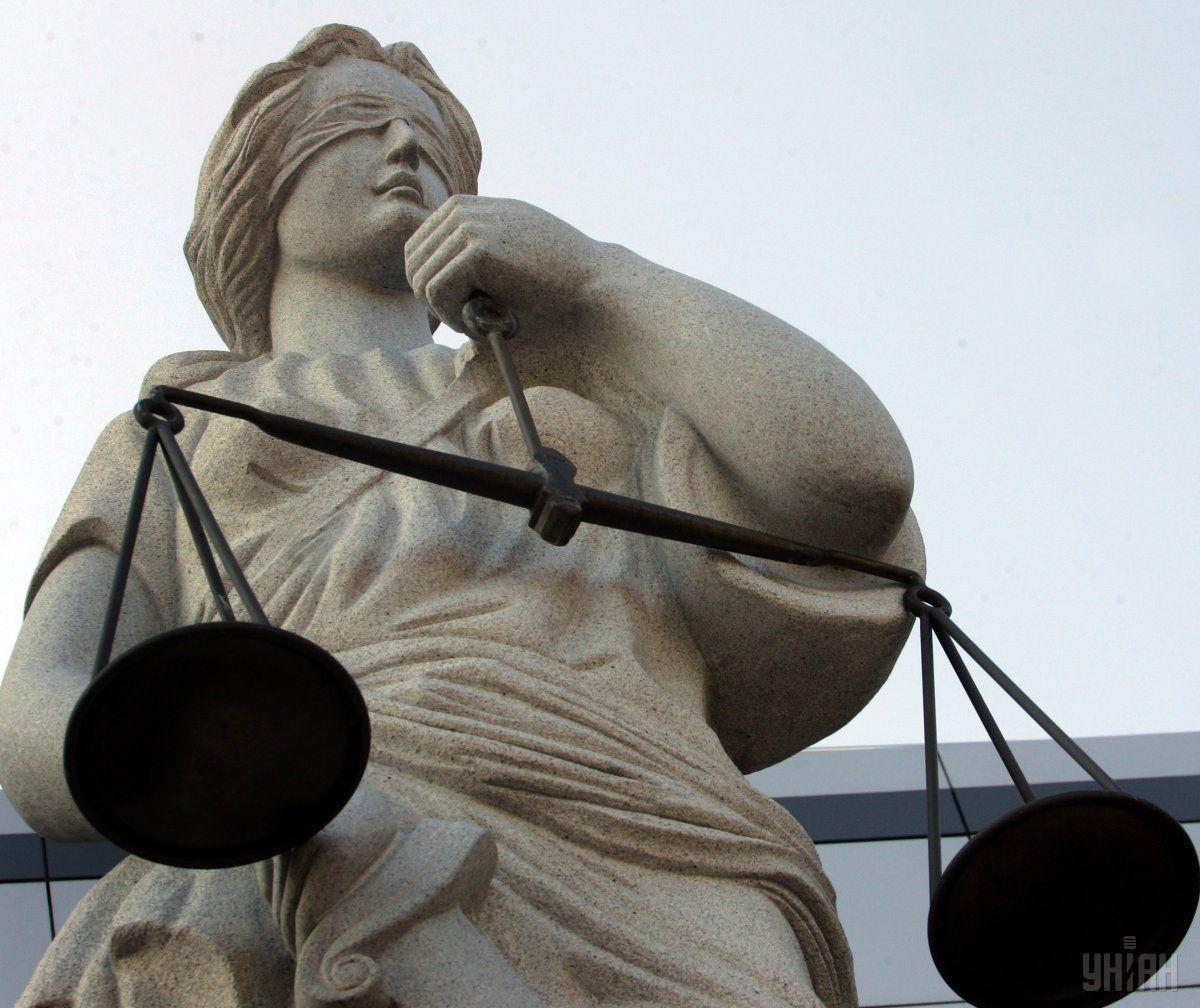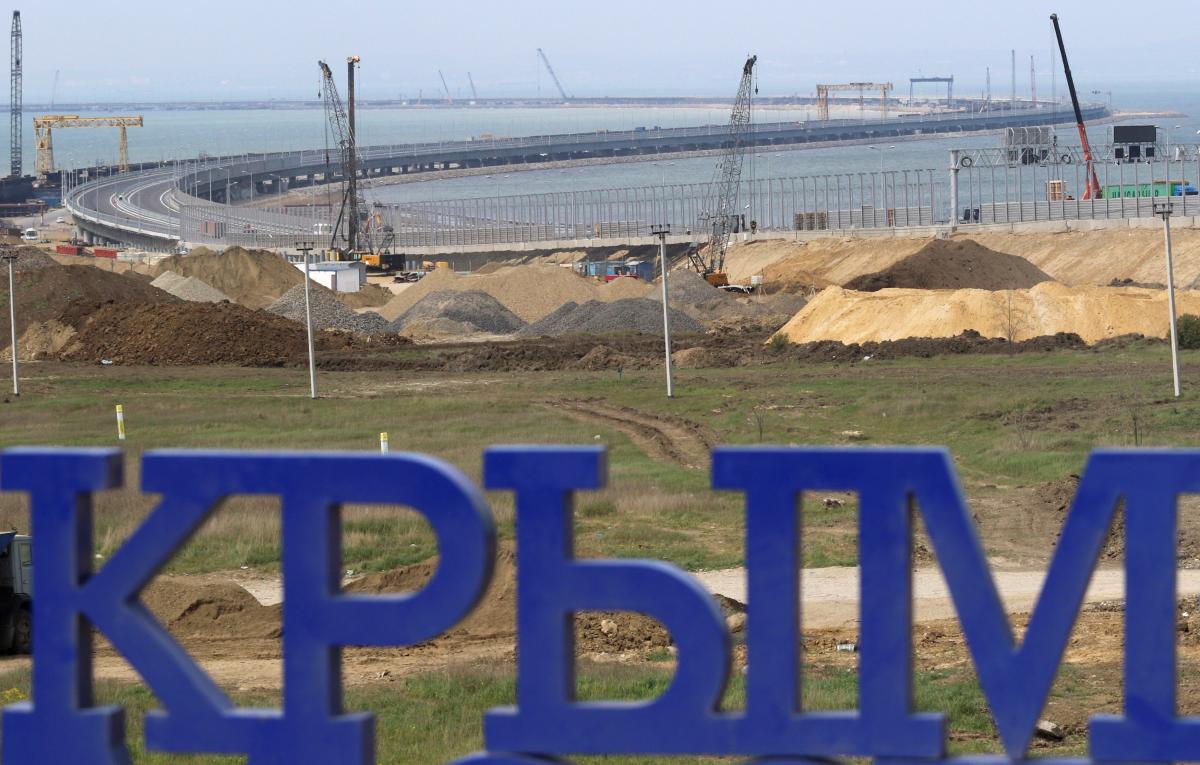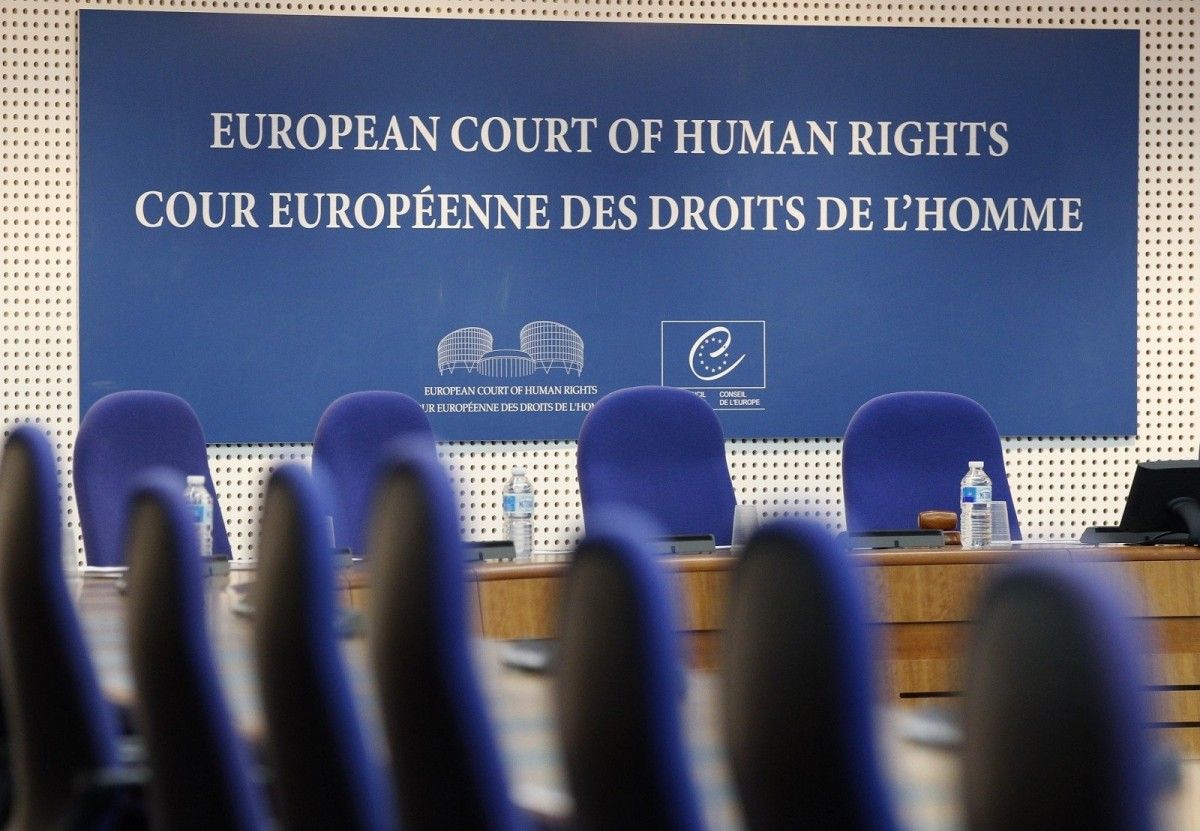
Suing Russia: New twists and turns in legal battle
Ukraine authorities plan to create an interdepartmental body to consolidate claims against Russia for compensation of damage over the Kremlin's aggression in Donbas and Crimea annexation. Experts consider the move to be timely, although warning that hearings in international courts will be lengthy, while Russia will not pay off its debts voluntarily, so Ukraine needs to be strategically prepared for foreclosures.
In Ukraine, an interdepartmental coordinating body is to be set up soon to shape up claims against Russia for compensation of damage inflicted through the aggression in Donbas and annexation of Crimea. President Poroshenko has made a corresponding request to the Cabinet of Ministers.
"Every day, Russia's ongoing armed aggression causes new immeasurable human suffering on Ukrainian land, infrastructure is being ruined, enterprises and economic potential of Donbas and Crimea are being destroyed," Poroshenko wrote on Facebook on August 1. "Therefore, we must not hesitate for a moment, and prepare Ukraine's consolidated claim against Russia to compensate for the damage done."
Why Ukraine needs a separate structure to control claims against Russia
The creation of an interdepartmental body is envisaged by the "reintegration" law passed by the Verkhovna Rada on January 18, 2018, where Russia's actions in the occupied Ukrainian territories are recognized as illegal and in breach of international humanitarian law. Therefore, the responsibility for the moral and material damage caused to the State of Ukraine, individuals and legal entities, is laid on the Russian Federation.
Experts consider the creation of the new agency as the right step to ensure Ukraine's quality action in court against Russia. However, this will not resolve the problem in general, while forcing the aggressor state to actually pay for the damage done will be a headache for Ukraine.
According to Kostyantyn Likarchuk, a partner at the international law firm Kinstellar, an interdepartmental body is necessary, as today, the process of filing lawsuits against Russia is disorganized - several state agencies, in particular, the Ministry of Foreign Affairs, Ministry of Justice, and representatives of state corporations are all engaged in it.
"Coordination would not be superfluous, especially given that the first decisions of international courts are emerging. It's about tens, hundreds of billions of dollars. The damage inflicted is huge. As far as I know, the preliminary stage of the litigations - the issue of jurisdiction - is already being completed. The main stage - the consideration of claims – will take at least 3 years. And Russia will pay everything if we consistently engage in recovery issues," the expert believes.
Expert in international law Vitaly Vlasiuk shares his colleague's opinion, but at the same time, specifies a number of details: "The idea to create a single body is correct, indeed. If it consolidates all claims of Ukraine in international courts, the Hague Tribunal, and all lawyers dealing with them, then this is a big plus, really. But we need to understand that this step will not win our cases. For each of the lawsuits, there's their own jurisdiction and expertise. But in general, a single body that will handle these cases and bring together experts from the Ministry of Justice and Ministry of Foreign Affairs, state companies that filed lawsuits against Russia, is a very sensible idea that will at least ensure quality coordination of all processes."
According to him, litigations in international jurisdictions are very lengthy and one shouldn't expect the verdicts will be 100% pro-Ukraine.

"Waiting for court rulings will take a long time. And these ruling won't be 100% pro-Ukrainian because no court will ever recognize the rightness of only one party. Exceptions are very rare. Even if one party is 100% right, it doesn't mean it will see 100% of its claims satisfied. It is for this reason that tactics and strategy are always carefully calculated. If the court says that Crimea is Ukrainian, it does not mean that Russia will return it. But this will put an end to international legal fluctuations. After all, today, a number of countries allow themselves claiming that they are not sure of Crimea belonging to Ukraine. After the court decision in our favor, no country and no politician will allow themselves such statements," Vlasiuk stressed.
In his opinion, there most likely be no practical result in the form of voluntary payment by the Russian Federation of damages caused to Ukraine. Besides, Russia, by adopting a law on non-acceptance of decisions of foreign courts, does not recognize the fact of proceedings at the level of international judiciary. At the same time, Ukraine will still be able to get some part of the awarded reparation. And the very appeal to the court is a positive signal for the West, bearing huge risks for Russia.
"They will be forced to pay damages in a number of lawsuits following the example of the Stockholm case of Naftogaz against Gazprom, where the latter didn't want to pay whatever the court told them to. But recovering losses in international public disputes related to Crimea and Donbas still raises big questions. Nevertheless, Ukraine's appeal to the courts is a correct step, a civilized one. The West supports us in all our endeavors connected with resolving the dispute with Russia in courts. And Western support is key for us. These are great advantages for our reputation, at the same time, great problems for the reputation of the Russian Federation. All our appeals with the courts are aimed at showing the Western world Ukraine's readiness to solve all problems in a civilized way and at the same time to be guided by the norms of international law. This is a huge positive signal for the West, including for investors," Vlasiuk said.
Professor of Political Science at the Kyiv-Mohyla Academy, research director at the Democratic Initiatives Foundation Oleksiy Haran shares the same opinion: "The creation of an interdepartmental body on Ukraine's claims to Russia is a necessary step to consolidate our legal action policy against the Russian Federation. Of course, Russia will be refusing to comply with court decisions, which is the aggressor's position. But when rulings of international courts have been handed down, then, one way or another, they will have to reckon with this. Moreover, any Russian property could be arrested abroad in pursuance of court decisions, as in the case of Naftogaz in the Stockholm Arbitration. Russia has already begun to maneuver in this situation, offering a peaceful agreement, new terms of contracts, or other options. In any case, litigation is an effective method of pressure on the Russian Federation."
Senior lawyer at Evris law firm, Maksym Zamihovsky, has a somewhat different view. He believes that to assess the decision to create such a single body, there is too little information about its functions and authority at the moment.
"Perhaps the establishment of an agency with its own staff, structure and budget is somewhat premature, since an interdepartmental consolidated group, where all information could flow from profile agencies, could also cope with the tasks set, given proper organization of work. Also, everything will depend on the tasks that will be put before the new agency. After all, in addition to collecting and analyzing huge amounts of factual data, it is necessary to perform economic evaluation of lost companies and sometimes entire industries, justify the amount of profits lost for the country's economy resulting from the loss of assets, while confirming their conclusions by convincing calculations. In addition, it would be great to use the existing international experience in resolving such disputes, and adjust the calculations with an eye to the approaches of international courts in assessing the evidence base," the expert said.
At the same time, like his colleagues, he does not rule out that the consideration of claims in international courts will be a long and painstaking process. And the duration will depend on the tactics of both parties. He also agrees it will not be easy to collect reparations from Russia.
"As the experience of YUKOS and other international processes with the participation of the Russian Federation shows, Russia simply denies the competence of the court to consider a dispute against a sovereign state. And the recovery directly from the state is the most difficult aspect of the whole dispute. The basic assets belong to separate legal entities - corporations, organizations, which are not responsible for the debts of the state, even if it is their founder. Therefore, following the decisions of international courts, there will be no less intense litigation about the possibility of collecting damages and the source of their repayment," Zamihovsky emphasized.

What lawsuits will be covered by new agency
Since 2014, Ukraine has filed many suits against the Russian Federation with various international courts.
Five lawsuits have been filed with the European Court of Human Rights regarding Russia's violations of the Convention for the Protection of Human Rights and Fundamental Freedoms in the Occupied Ukrainian Territories. On June 26, 2018, the ECHR granted the official Kyiv's petition of October 2016 and merged four lawsuits into two proceedings - on Crimea and Donbas, and a separate case of the removal of children from Donbas to Russia.
This step by the ECHR is a serious problem for Russian representatives, who will now find it much harder to seek the suspension of consideration of individual cases. Meanwhile, in March 2018, the Russian Federation said that they were studying the possibility of denouncing the European Convention on Human Rights and ending cooperation with the ECHR.
The state-owned Naftogaz of Ukraine filed a lawsuit with the International Tribunal under the Permanent Court of Arbitration in The Hague against Russia for seizing assets in the occupied Crimea: land and transport infrastructure, in particular, the peninsula's gas transmission system with the Hlibovsky underground gas storage, in which, at the moment of the annexation, there was 600 million cubic meters of gas; 90 offshore gas and oil wells; eight offshore fixed platforms; eight conductor blocks; 70 km-long offshore gas pipelines; 31 vessels, of which four are drilling platforms. The total amount of claims is about $8 billion. The court's decision is expected before the end of 2018. "As early as this year, we can win up to $8 billion. But then there will be another question of how we collect this money," said Naftogaz CCO Yuriy Vitrenko.
In 2016, Ukraine also filed a lawsuit against Russia with the International Court of Justice regarding the Convention on the Law of the Sea. It accommodates such fundamental issues as the use of the sea, violation of environmental safety, and seizure of objects of cultural heritage. The amount of compensation to be paid by Russia will be determined by the International Tribunal of the United Nations. According to experts, it will be significant.
In 2018 Ukraine filed a lawsuit against Russia with the International Court of Arbitration in The Hague on the UN Convention on the Law of the Sea in connection with the violation by the Russian Federation of Ukraine's sovereign rights in the Black and Azov Seas and the Kerch Strait. The amount of the claim has not been disclosed.
The war between Ukraine and Russia is also ongoing at the economic front. Both sides filed suits with the World Trade Organization, which is designed to regulate disputes in international trade. In total, there are four Ukrainian-Russian cases in the WTO. In two of them, decisions have already been taken, and they were not in Ukraine's favor. Two more disputes remain pending. The amounts of claims have not been voiced.
In 2014, Ukraine also sued the International Criminal Court (The Hague Tribunal) for war crimes and crimes against humanity committed in the east of Ukraine and in Crimea. According to the preliminary report of the Tribunal, the situation in Crimea and Sevastopol was recognized as equivalent to the international armed conflict between Ukraine and the Russian Federation. Russia replied that they would not contest the findings, since they did not recognize the ICC jurisdiction.
In 2017, Ukraine filed a lawsuit against Russia with the International Court of Justice, accusing the Russian Federation of supporting terrorism in the east of Ukraine and discrimination against ethnic Ukrainians and Crimean Tatars in the occupied Crimea. The court found the evidence base imperfect, that is, did not recognize Russia's financing of terrorism in Donbas, but obliged the Russian Federation to ensure the right of Crimeans to receive education in the Ukrainian language, as well as the right of the Crimean Tatars to represent their interests in the Mejlis. However, Russia is not fulfilling the court ruling. Ukraine, for its part, has submitted new evidence to the court. There is no final decision of the Tribunal yet.
As for the total amount of damage caused by Russia as a result of the annexation of Crimea and occupation of Donbas, the June study on the price of the Kremlin aggression in Ukraine in the material dimension by the Atlantic Council's Eurasia Center estimates it at $100 billion. The assessment was carried out according to the principle of the share of lost GDP being multiplied by four. According to Eurasia Center, Donbas was the source of 10% of Ukraine's GDP, Crimea – the source of 3.7%. The IMF estimated Ukraine's GDP in the pre-crisis year of 2013 at $179.6 billion. Thus, the total value of the assets of Crimea and Donbas amounted to 13.7% of this amount, multiplied by four, or $98.4 billion.
Without taking into account the future size of the reparation to be paid, which Russia will undoubtedly obliged to do by international courts, the main thing is the condemnation of the aggressor's actions at the global level based on international law. This will entail the support of our country on a global scale and the complete isolation of the Russian Federation.
Nana Chornaya

